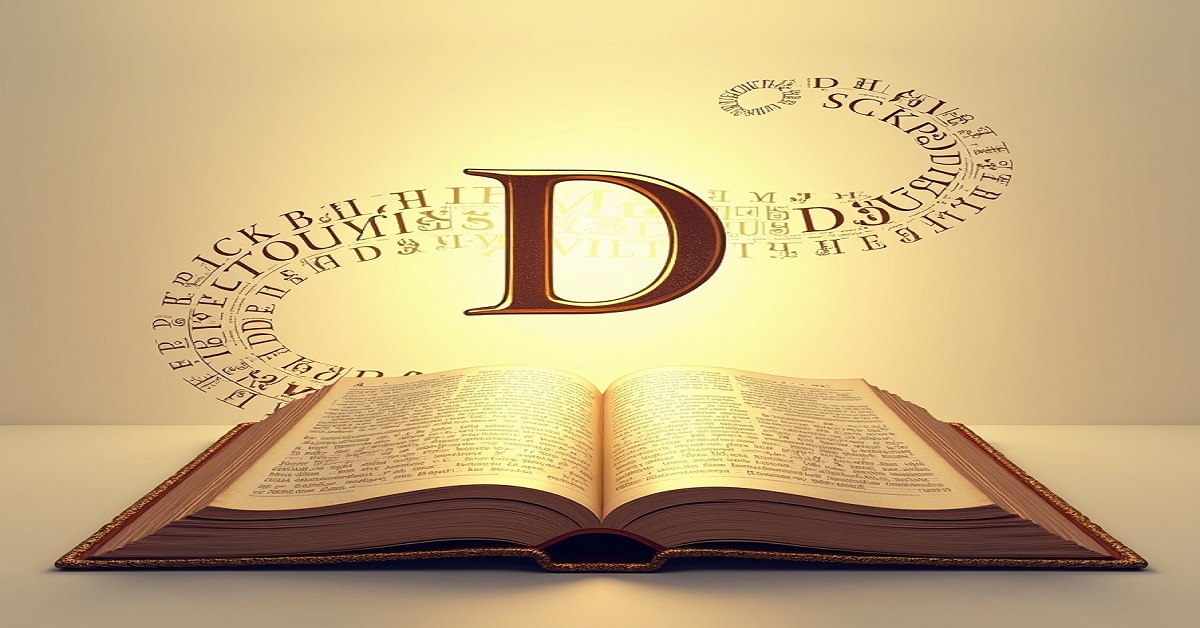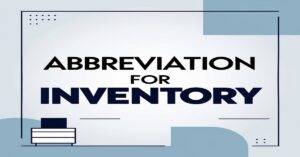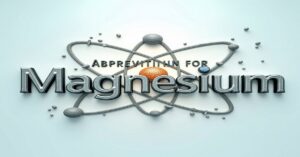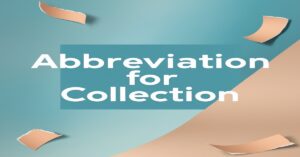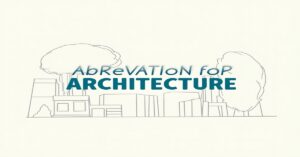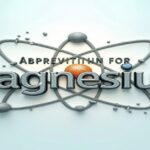Adjectives are powerful tools in language. They bring our descriptions to life, adding depth and vividness to our communication. From describing a friend’s personality to detailing a beautiful landscape, adjectives help us paint the world with words. The letter D boasts a particularly rich collection of adjectives that can enhance any conversation or writing. Whether you’re crafting a story, trying to be more expressive in your daily interactions, or simply expanding your vocabulary, learning adjectives that start with D can be an exciting way to level up your language skills.
In this article, we’ll explore over 150+ D adjectives, grouped into categories, making it easier for you to choose the perfect word for any situation.
Describing Personality
Personality adjectives are often the first ones we use to describe people. Whether you’re discussing someone’s traits with friends or writing character descriptions, D adjectives can help add nuance to your portrayal. Here are a few adjectives that capture different facets of personality:
- Daring – Someone who is bold and willing to take risks.
- Diligent – A person who works hard and shows persistence.
- Dreamy – Someone who is often lost in their thoughts or fantasies.
- Devious – A person who is sly or dishonest.
- Dynamic – Full of energy and enthusiasm, constantly changing.
- Docile – Easily managed or obedient.
- Discreet – Someone who is careful and prudent in their speech or actions.
- Dramatic – A person who is prone to exaggerated emotions or actions.
- Dubious – A person who is doubtful or suspicious about something.
These adjectives can help you paint a more vivid picture of the people you encounter or create, adding depth and complexity to your descriptions.
Describing Appearance
When you want to describe someone’s physical appearance, D adjectives can be just as useful. Whether you’re capturing the features of a character or making observations about someone in real life, these adjectives will help you communicate clearly and creatively.
- Dainty – Delicately small and pretty.
- Disheveled – Untidy or messy, especially in reference to someone’s appearance.
- Dazzling – Extremely bright, impressive, or beautiful.
- Dark – Often used to describe hair, eyes, or skin tone.
- Distinguished – Someone who stands out due to their appearance or achievements.
- Dim – Not bright, used for describing a lack of light or clarity in a person’s features.
- Dirty – Unclean or soiled in appearance.
- Drab – Lacking color or brightness, dull in appearance.
- Doughy – Soft, smooth, and round in appearance, often used for someone’s body type.
- Delicate – Fine or fragile in appearance.
These adjectives are great for creating detailed and precise descriptions that make your writing come to life.
Describing Emotions or States of Mind
D adjectives also provide a way to express emotions, moods, and mental states. Whether you’re trying to express someone’s internal world or explore different emotional tones, the following adjectives can help:
- Depressed – Feeling sad, hopeless, or downcast.
- Delighted – Experiencing great joy or pleasure.
- Distraught – Deeply upset, often due to worry or loss.
- Disappointed – Feeling let down or unsatisfied with something or someone.
- Dismayed – Feeling alarmed or distressed, often as a result of unexpected events.
- Defeated – Feeling as if one has lost or failed.
- Doubtful – Unsure or lacking confidence in something.
- Discontented – Unhappy with one’s situation or circumstances.
- Desperate – Feeling hopeless and willing to take drastic actions.
- Defensive – Reacting to perceived threats or criticism.
These adjectives can help convey complex emotions and mental states, allowing you to engage your audience more effectively.
Describing Things or Objects
Finally, D adjectives can be useful when describing objects, places, or other things. From the qualities of a beautiful object to the state of an environment, these adjectives bring richness and detail to your descriptions.
- Durable – Able to withstand wear, pressure, or damage.
- Dull – Lacking brightness, sharpness, or interest.
- Delicious – Full of flavor, very tasty.
- Dangerous – Having the potential to cause harm or injury.
- Dizzying – Causing a feeling of vertigo or confusion.
- Dense – Thick or heavy in terms of structure or texture.
- Damp – Slightly wet, often unpleasantly so.
- Decorative – Designed for beauty rather than utility.
- Deep – Having considerable depth or intensity.
- Dusty – Covered with or full of dust, often used to describe objects that are old or neglected.
These adjectives can be used in a variety of contexts to describe things that need an extra layer of detail, whether you’re writing a description or simply providing an observation.
Describing Personality
Adjectives for personality traits are essential when you want to describe a person’s nature. These D adjectives can help you portray individuals in both positive and negative lights.
- Direct – Straightforward and honest in communication.
- Domineering – Overbearing, controlling, or assertive in a negative way.
- Discerning – Having good judgment or insight.
- Defiant – Resistant or showing opposition to authority.
- Dependent – Needing support or assistance from others.
- Detached – Emotionally removed or disinterested.
- Dutiful – Showing a sense of responsibility and duty.
- Dashing – Attractive in a stylish or adventurous way.
- Desirable – Worth wanting or having, often in reference to traits.
- Doubtful – Uncertain or suspicious about something or someone.
These adjectives help paint a fuller picture of someone’s personality and make your descriptions more dynamic and varied.
Describing Appearance
Whether you’re describing someone’s look, an object’s visual appeal, or the features of a scene, D adjectives can add visual texture and richness.
- Drunk – Appearing or behaving as though intoxicated.
- Dashing – Stylish, handsome, or charming.
- Diminutive – Small, tiny, or petite in size.
- Dark-haired – Having dark-colored hair.
- Dapper – Neat, stylish, and elegant in appearance.
- Disguised – Hidden or altered in appearance, often intentionally.
- Droopy – Slouching or sagging, often used for eyes or a posture.
- Dizzying – Causing vertigo or a feeling of spinning.
- Distorted – Twisted or out of shape.
- Drunken – In an altered state due to alcohol, affecting appearance.
These adjectives are perfect for describing both people’s appearances and the way objects or settings look.
Describing Emotions or States of Mind
Describing emotional states or mental conditions is easier with a strong set of adjectives. These D adjectives can help convey a wide range of feelings.
- Disillusioned – Feeling disappointed or let down by reality.
- Disheartened – Losing confidence or courage due to setbacks.
- Dramatic – Prone to exaggerated emotions or actions.
- Despondent – Feeling hopeless or in despair.
- Displeased – Unhappy or dissatisfied with something.
- Distressed – Suffering from anxiety, pain, or worry.
- Disconcerted – Feeling disturbed or unsettled.
- Delirious – Experiencing wild excitement or confusion.
- Deflated – Feeling defeated or defused in spirit.
- Desolate – Feeling empty or abandoned, often due to loss or loneliness.
These adjectives are particularly useful for portraying the emotional depth and complexity of characters in writing or expressing your own feelings more precisely.
Describing Things or Objects
When it comes to objects or things, D adjectives can enhance the clarity and detail of your descriptions. Here’s a collection for various scenarios:
- Dusty – Covered in dust or dirt.
- Durable – Strong, resistant to wear and tear.
- Deformed – Shaped irregularly, often due to injury or abnormal growth.
- Dilapidated – In a state of disrepair or ruin.
- Dim – Not bright or lacking clarity.
- Defective – Having a flaw or imperfection.
- Dismal – Gloomy or causing sadness.
- Delicate – Fragile, easily broken or damaged.
- Durable – Able to last through wear and tear.
- Dinky – Small, insignificant, or poorly made.
Using these adjectives adds vividness to your descriptions of objects and their conditions.
Describing Behavior
Behavioral adjectives are great when you want to convey how someone is acting or reacting to a situation. Here are more D adjectives to express actions or tendencies:
- Docile – Calm and easy to control.
- Deceptive – Misleading or dishonest in actions.
- Demanding – Requiring a lot of attention, effort, or resources.
- Disruptive – Causing disturbances or interruptions.
- Defensive – Reacting with an attitude of protection or defense.
- Deliberate – Done with careful consideration or intention.
- Dutiful – Showing a sense of obligation or responsibility.
- Desperate – Acting with extreme urgency or recklessness.
- Dramatic – Over-the-top or exaggerated in behavior.
- Dashing – Acting with a confident, bold flair.
These adjectives are ideal for describing people’s actions, making your observations and storytelling more engaging.
Describing Nature and Environment
Adjectives describing nature and environments often evoke specific imagery and sensations. D adjectives offer ways to portray various landscapes, weather conditions, and more.
- Damp – Slightly wet, often in a chilly, uncomfortable way.
- Dusty – Filled with dust, common in dry or neglected areas.
- Deserted – Empty, without people or life.
- Dampish – Slightly damp or moist.
- Drizzling – Light rain falling in small drops.
- Dense – Thick or compact, often used to describe fog, forests, or growth.
- Dismal – Dark, gloomy, or dreary in atmosphere.
- Dampened – Slightly wet, or metaphorically, subdued or lessened.
- Dewy – Covered with morning dew, often used to describe plants or grass.
- Darkening – Becoming darker, often with reference to the sky or a mood.
These adjectives are perfect for setting the scene or creating a vivid atmosphere in your writing.
Describing Quality or Condition
Lastly, there are D adjectives that describe the quality or condition of something. They provide precision in describing an object’s state, value, or overall nature.
- Deficient – Lacking something essential, not enough.
- Deteriorating – In the process of decline or worsening.
- Distinguished – Notable, set apart due to excellence or achievement.
- Diluted – Made weaker or less effective, often by being mixed with something else.
- Dampened – Reduced in intensity or force.
- Detrimental – Harmful or causing damage.
- Divine – Of exceptional beauty or excellence, often used for godly or heavenly qualities.
- Decayed – In a state of rot or breakdown.
- Disadvantaged – Lacking the benefits or resources of others.
- Dysfunctional – Not operating properly or efficiently.
These adjectives help you to express the condition or quality of things, people, or experiences with greater clarity.
Describing Personality
When you want to describe a person’s character or qualities, these D adjectives will help you communicate specific traits more effectively.
- Dutiful – Showing a sense of duty or responsibility.
- Doubtful – Uncertain or skeptical about something.
- Detached – Emotionally or mentally distant, uninvolved.
- Dishonest – Not truthful, deliberately misleading.
- Delightful – Bringing joy or pleasure, charming.
- Dramatic – Prone to exaggerated reactions or behaviors.
- Dejected – Feeling sad or low in spirits.
- Deferential – Showing respect or yielding to others.
- Defensive – Guarding oneself against perceived criticism.
- Discerning – Having a keen ability to judge or understand.
These adjectives will allow you to describe a wide array of personalities, from the negative to the positive.
Describing Appearance
Here are more D adjectives that can help you paint a picture of someone’s or something’s appearance, adding details to bring your descriptions to life.
- Dusty – Covered with dust, often used for objects or places.
- Disheveled – Untidy, messy in appearance.
- Diminutive – Small or petite in size.
- Delicate – Fragile, light, or finely detailed.
- Dashing – Attractive, stylish, and full of charm.
- Dim – Not bright or lacking clarity, often used for lighting or eyes.
- Dirty – Unclean or soiled, often used for things or clothing.
- Dull – Lacking brightness, sharpness, or interest.
- Doughy – Soft and smooth, often used to describe round or plump features.
- Drab – Lacking color, dull, or boring in appearance.
These adjectives are great for describing the physical attributes of people, places, and objects.
Describing Emotions or States of Mind
These D adjectives help express various mental states and emotional experiences, providing clarity when you want to describe moods or feelings.
- Disappointed – Feeling let down or unsatisfied with expectations.
- Desperate – Having a sense of urgency or hopelessness.
- Dismayed – Feeling shocked, upset, or disheartened.
- Delirious – Experiencing confusion, often from excitement or illness.
- Discontented – Unhappy or dissatisfied with a situation.
- Defeated – Feeling as if one has been overcome or beaten.
- Distressed – Suffering from anxiety or concern.
- Disillusioned – Losing faith or belief in something once cherished.
- Disheartened – Losing motivation or spirit due to failure or adversity.
- Despondent – Feeling hopeless or in a state of despair.
These adjectives will help you capture a broad spectrum of emotions in your writing or conversations.
Describing Things or Objects
For describing objects, their conditions, or qualities, D adjectives can help bring more depth to your writing.
- Durable – Long-lasting and resistant to wear.
- Dim – Lacking brightness or light.
- Disorganized – Messy or lacking in order.
- Defective – Having a flaw or imperfection.
- Damp – Slightly wet, often used for things exposed to moisture.
- Deformed – Shaped abnormally, often due to injury or genetic causes.
- Dilapidated – In a state of disrepair or ruin.
- Delicate – Fragile or requiring careful handling.
- Deteriorating – Worsening or breaking down over time.
- Dusty – Covered with a layer of dust, often from neglect or age.
These adjectives are essential when describing the state of physical objects or the environment.
Describing Behavior
Behavioral adjectives can help you describe how people act or react in various situations. Here are more D adjectives to express different behaviors.
- Deceptive – Misleading or dishonest in behavior.
- Demanding – Requiring a lot of effort, attention, or time.
- Dutiful – Acting out of a sense of obligation or responsibility.
- Disruptive – Causing disturbance or interruption.
- Disengaged – Lacking involvement or interest in something.
- Defiant – Showing resistance or opposition to authority or control.
- Deliberate – Done with careful planning or intention.
- Dutiful – Obedient or ready to carry out one’s duties.
- Dramatic – Exaggerated in behavior, often for effect.
- Docile – Calm and easily controlled or trained.
These adjectives describe actions or reactions, whether in relation to others or in response to certain situations.
Describing Nature or Environment
Describing natural elements or environmental conditions becomes easier with the following D adjectives. They bring color and texture to your writing about landscapes, weather, and settings.
- Dusty – Covered with dust or debris.
- Damp – Slightly wet, often in a cold or unpleasant way.
- Desolate – Empty, barren, and lacking life or hope.
- Dense – Thick or heavy, often used to describe forests or fog.
- Dewy – Covered with dew, typically in the early morning.
- Drizzling – Light rain falling in small droplets.
- Dramatic – Striking or impressive in appearance, especially in nature.
- Deserted – Empty of people, often used to describe a place.
- Dilapidated – In a state of decay or ruin.
- Dull – Lacking brightness or vividness, often used for landscapes or skies.
These adjectives evoke images of environments and natural phenomena.
Describing Quality or Condition
Describing the quality or condition of something is crucial for giving a clearer picture of what you’re discussing. Here are some D adjectives for this purpose.
- Distinguished – Having a respected, refined, or notable status.
- Degraded – Reduced in quality or dignity.
- Deteriorated – In a state of decline or worsening.
- Delectable – Delicious or highly pleasing in taste.
- Deficient – Lacking something essential or necessary.
- Dysfunctional – Not working properly or efficiently.
- Diluted – Weakened by adding something less concentrated.
- Detrimental – Harmful or damaging.
- Divine – Extremely beautiful, excellent, or god-like.
- Dismal – Gloomy, dreary, or causing unhappiness.
These adjectives help you assess or evaluate the condition or value of something.
Conclusion: Expanding Your Vocabulary
Mastering adjectives that start with the letter D is just one way to improve your communication. By learning how to describe people, objects, and emotions in vivid detail, you’ll be able to engage your audience more effectively and leave a lasting impression. Whether you’re a writer, student, or simply someone looking to expand your vocabulary, using these adjectives can give you more tools to express yourself clearly and creatively.
Take a moment to reflect: How might you incorporate some of these D adjectives into your own vocabulary today? Try describing a person or object you encounter using one of the adjectives from this list. You’ll be surprised at how much it can improve your communication skills!
MCQ Quiz: Adjectives Starting with the Letter “D”
Test your understanding of the D adjectives provided in the article with this quiz. Answers are given after each question for self-assessment.
- Which of the following adjectives best describes someone who is emotionally distant or uninvolved?a) Defeated
b) Detached
c) Diligent
d) DashingAnswer: b) Detached
- Which adjective would you use to describe something in a state of decay or ruin?a) Delicate
b) Diminutive
c) Deteriorating
d) DashingAnswer: c) Deteriorating
- Which adjective refers to a person who shows a sense of duty or responsibility?a) Defiant
b) Dutiful
c) Deceptive
d) DramaticAnswer: b) Dutiful
- What adjective would best describe an appearance that is messy or untidy?a) Dashing
b) Dusty
c) Disheveled
d) DimAnswer: c) Disheveled
- Which of these adjectives refers to a situation that causes harm or damage?a) Dismal
b) Detrimental
c) Dramatic
d) DesolateAnswer: b) Detrimental
- Which adjective would describe a person who is stylish, attractive, and full of charm?a) Dashing
b) Deceptive
c) Deflated
d) DependentAnswer: a) Dashing
- Which of the following adjectives describes something covered with dust or dirt?a) Dismayed
b) Diminutive
c) Dusty
d) DilutedAnswer: c) Dusty
- What adjective best describes a weather condition where light rain falls in small droplets?a) Dewy
b) Dim
c) Drizzling
d) DustyAnswer: c) Drizzling
- Which of the following adjectives best describes something fragile or requiring careful handling?a) Durable
b) Dainty
c) Delicate
d) DramaticAnswer: c) Delicate
- Which adjective would you use to describe someone who is misleading or dishonest in their behavior?a) Deceptive
b) Demanding
c) Distinguished
d) DefensiveAnswer: a) Deceptive
- What adjective best describes a landscape that is empty or barren?a) Drab
b) Defeated
c) Desolate
d) DramaticAnswer: c) Desolate
- Which adjective would you use for someone who is overly dramatic or exaggerated in their actions?a) Deceptive
b) Delirious
c) Dramatic
d) DiligentAnswer: c) Dramatic
- Which adjective describes something that is lacking in brightness or clarity?a) Dim
b) Dashing
c) Delirious
d) DistinguishedAnswer: a) Dim
- What adjective best describes a small or petite size?a) Dashing
b) Diminutive
c) Dense
d) DismalAnswer: b) Diminutive
- Which adjective refers to someone who is feeling low in spirits or sad?a) Dejected
b) Dramatic
c) Diligent
d) DismayedAnswer: a) Dejected
- Which adjective describes something that is long-lasting and resistant to wear and tear?a) Degraded
b) Deteriorated
c) Durable
d) DustyAnswer: c) Durable
- Which adjective describes someone who is having a strong sense of urgency or hopelessness?a) Despondent
b) Delirious
c) Desperate
d) DistinguishedAnswer: c) Desperate
- What adjective would describe a situation that is gloomy or dreary in atmosphere?a) Dismal
b) Dashing
c) Dusty
d) DramaticAnswer: a) Dismal
- Which adjective would best describe a person who is easy to control or teach?a) Diligent
b) Docile
c) Deceptive
d) DefiantAnswer: b) Docile
- Which adjective refers to a state of mental or emotional confusion, often due to excitement or illness?a) Disheartened
b) Delirious
c) Deceptive
d) DisillusionedAnswer: b) Delirious

Tony James is a passionate wordsmith and the creative force behind Winky Hive. With a knack for uncovering the stories behind slang and weaving emotions into poetry, Tony brings a unique voice to every piece he writes. A lifelong lover of language, he thrives on exploring how words evolve, connect, and inspire.
When he’s not penning articles or crafting verses, Tony enjoys diving into cultural trends, reading classic poetry, and discovering hidden gems in modern expressions. His mission? To make Winky Hive a haven for those who love the art of language in all its vibrant forms.
